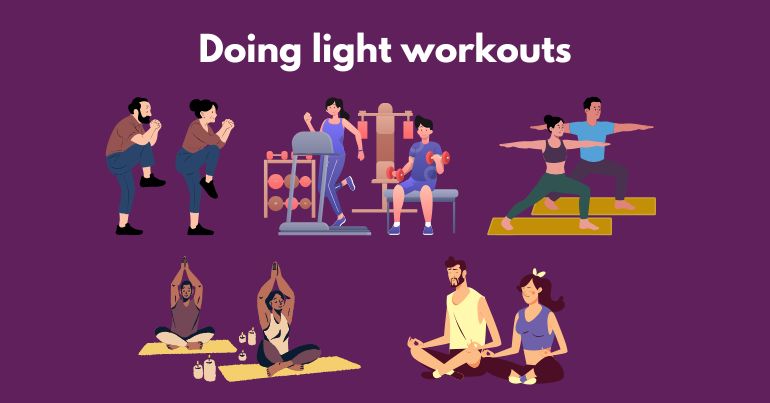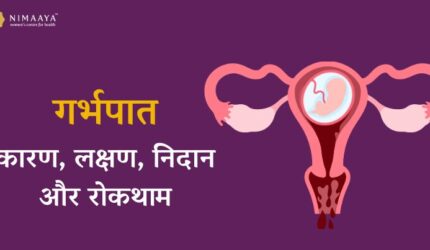The journey one undertakes in trying to conceive (TTC) is full of emotional anguish and physical nuisance for couples. However, other than conception, caring for emotional well-being and intimacy between partners is imperative. Stress, pressure, and medical interventions may hurt the relationship, requiring couples to strengthen their emotional and physical bond during this time.
This guide will show how love, connection, and health enhance intimacy as couples move through the TTC process. It covers psychological influences and tangible lifestyle changes couples can implement to work through the TTC experience filled with intimacy, passion, and harmony.
Understanding the Emotional Impact of TTC
The adventure of becoming a parent can be great, with highs and lows. Couples can go through the ups and downs: hope and excitement intermixed with frustration and anxiety. Poor intimacy can sometimes be brought about by the stress derived from timed intercourse, fertility treatments, and rounds of disappointments.
Common Emotional Challenges:
- Performance Pressure: With scheduled intercourse, love-making can become a chore.
- Disappointment and Grief: A negative pregnancy test just adds to feelings of sadness and frustration.
- Guilt and Blame: When fertility complications arise, one or both partners might shoulder blame or responsibility.
- Social Pressure: Friends and family inquiring about potential children can increase tension.
Recognising these emotional trials and tribulations is one step to being emotionally intense together. Communicating and supporting each other is instrumental to keeping intimacy alive.
Know More: कंसीव के अर्थ (Conceive Meaning in Hindi): जानिए विस्तार से
Strengthening Emotional Connection During TTC
1. Prioritize Open Communication
Honest discussions about fears, expectations, and feelings will help couples avoid resentments through the TTC journey. There is more emphasis on scientific factors than the emotional experiences they have.
Ways to Foster Communication:
- Regularly schedule an uninterrupted time for each partner to speak about feelings- no judging allowed.
- Say thank you and express affection every day.
- Stay away from blaming; consider fertility a joint venture.
2. Engage in Non-Sexual Intimacy
Intimacy goes beyond the physical; emotional bonding is equally essential. Couples should focus on sweet gestures that nourish their relationship.
Ideas for Non-Sexual Intimacy:
- Frequent holding hands, hugging, and cuddling.
- Quality time together on dates and out-of-town weekends.
- Love notes and small tokens of appreciation.
3. Practice Mindfulness and Stress Reduction
Stress is an adversary to fertility and intimacy. Mindfulness and relaxation techniques will work to balance the emotions and instil peace.
Relaxing Activities:
- Deep-breathing exercises
- Meditation and guided imagery
- Couples’ yoga and massages
Maintaining Fertility & Intimacy Through Lifestyles
Fertility and a satisfactory sexual experience are directly dependent on physical health. Physical well-being boosts hormone levels, energy levels, and libido, while an unbalanced lifestyle does the opposite.
1. Optimize Nutrition for Fertility and Sexual Health
A well-balanced diet supports reproductive health and overall well-being.
Essential Nutrients for Fertility:
- Folic Acid: Important for egg quality and preventing congenital disabilities.
- Zinc: Important for sperm quality and testosterone levels.
- Omega-3 Fatty Acids: Vital for improved blood flow in the reproductive organs.
- Vitamin D: Important for the regulation of hormones and immune response.
Fertility-Boosting Foods:

- Leafy greens, nuts, seeds
- Fatty fish such as salmon
- Whole grains and legumes
- Dark chocolate (high in antioxidants)
2. Exercise for Hormonal Balance and Energy
Moderate physical tasks can stimulate blood circulation, reduce stress, and keep hormone levels under control. However, if done excessively, it could weaken fertility; therefore, moderation is the best policy.

Recommended Exercises:
- Relaxing yoga and Pilates
- Walking or a leisurely jog
- Strength training done moderately
3. Maintain a Healthy Weight
Hormone balance and fertility are susceptible to being underweight or overweight. Thus, a proper BMI sustains ovulation and sperm health.
4. Improve Sleep Quality
Anything that disturbs quality sleep, like not sleeping for 7-9 hours daily, weakens libido and badly affects reproductive hormones. So, sleeping well should be par excellence in keeping energy full and fertility high.
Read More: Hormonal Imbalances and Female Fertility: Restoring Balance
Conclusion
TTC is a journey of emotional strength, patience, and a deep bond with one’s partner. Although the achievement of being pregnant is essential, nurturing love and intimacy is the foremost priority. Couples then can share an emotionally stronger connection and ensure that their journey to conception becomes less stressful and more fulfilling by nurturing love, following a healthy lifestyle, and keeping the flame of passion alive.
For fertility and reproductive health counselling, visit Nimaaya IVF Treatment Center , where our experienced team supports couples in their dreams of parenthood while keeping their health in mind.
FAQs
Q: Can stress affect fertility?
Yes, high-stress levels can impact hormonal balance and reduce the chances of conception.
Q: How can we maintain intimacy while TTC?
Engage in non-sexual intimacy, communicate openly, and reduce the pressure surrounding timed intercourse.
Q: What foods help with fertility?
Foods rich in folic acid, zinc, omega-3 fatty acids, and vitamin D, such as leafy greens, nuts, fatty fish, and whole grains.
Q: Does exercise impact fertility?
Moderate exercise boosts hormonal balance and stress reduction, but excessive workouts can negatively impact fertility.
Q: What role does sleep play in fertility?
A lack of quality sleep can disrupt hormonal levels, lowering fertility and libido.
Embrace love, health, and connection on your TTC journey.
Visit Nimaaya IVF for expert guidance on fertility and reproductive health today!



